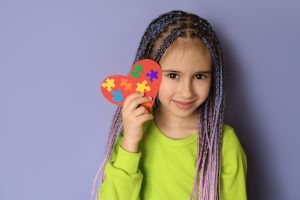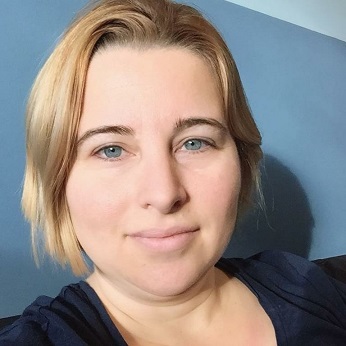December 27, 2022
by Patricia Tomasi
 A new study published in Nature Communications delved more into autism by growing brain-like organoids.
A new study published in Nature Communications delved more into autism by growing brain-like organoids.
“The human brain is unique, and certain aspects of human brain development, and brain diseases, are notoriously difficult to study using animal models,” study author Alex Shcheglovitov, PhD told us. “We wanted to develop a new method to model early aspects of human telencephalic brain development in health and disease. Our approach was to make human brain organoids in a robust and reproducible manner.”
Researchers had an idea that starting from pluripotent stem cell-derived neural rosettes.
“These are beautifully self-organized clusters of neural progenitor cells which may improve the organization of cells in brain organoids,” Shcheglovitov told us. “We wanted to apply this model to study deficits in neurodevelopmental disorders.”
Genetic abnormalities in a gene called SHANK3 causes autism and other neurodevelopmental deficits. To study these deficits, the researchers made organoids from cells that have the same genetic abnormalities.
“We badly need reliable models to study the human brain,” Shcheglovitov told us. “We also wanted to develop a methodology to use human and patient-specific cells to understand the cellular and molecular mechanisms that are disrupted in human brain disorders. We plan on using brain organoids created from cells from patients to develop new therapies for those patients.”
Researchers caused human pluripotent stem cells to differentiate into structures called neural rosettes. Then, they manually isolated single rosettes and cultured them for up to five months to make organoids. They also generated organoids from stem cells obtained from healthy control individuals and patients with mutations in the gene SHANK3.
“We found that organoids made in this way consist of a diversity of cells that are organized relative to each other similar to the way that they are organized in the brain,” Shcheglovitov told us. “We discovered that many neurons in organoids become functionality mature.”
Researchers also determined that organoids that do not have the gene SHANK3 have synaptic and intrinsic deficits associated with disrupted expression of cell adhesion proteins, clustered protocadherins.
“We were quite surprised to find a large fraction of inhibitory neurons in single neural rosette derived organoids and ependymal- and periendothelial-like cells that, to my knowledge, have never been previously observed in organoids,” Shcheglovitov told us. “These cells are important for making the brain an isolated organ of the body.
Of course, the disrupted expression of clustered protocadherins in SHANK3-deficient organoids is very interesting. It could potentially explain some of the deficits observed in association with SHANK3 deficiency and this knowledge could contribute to the development of new therapies for patients. However, more work will need to be done on this front.”
The results of the study provide insights into human telencephalic development and disorders associated with SHANK3 deficiency, including Phelan-McDermid syndrome, autism, intellectual disability, and epilepsy. It is an important step forward in the ability to model human brain development in health and disease and it could be useful for drug development in the future. However, it is important to remember that organoids are not human mini-brains.
About the Author
 Patricia Tomasi
Patricia Tomasi
Patricia Tomasi is a mom, maternal mental health advocate, journalist, and speaker. She writes regularly for the Huffington Post Canada, focusing primarily on maternal mental health after suffering from severe postpartum anxiety twice. You can find her Huffington Post biography here. Patricia is also a Patient Expert Advisor for the North American-based, Maternal Mental Health Research Collective and is the founder of the online peer support group - Facebook Postpartum Depression & Anxiety Support Group - with over 1500 members worldwide. Blog: www.patriciatomasiblog.wordpress.com
Email: tomasi.patricia@gmail.com